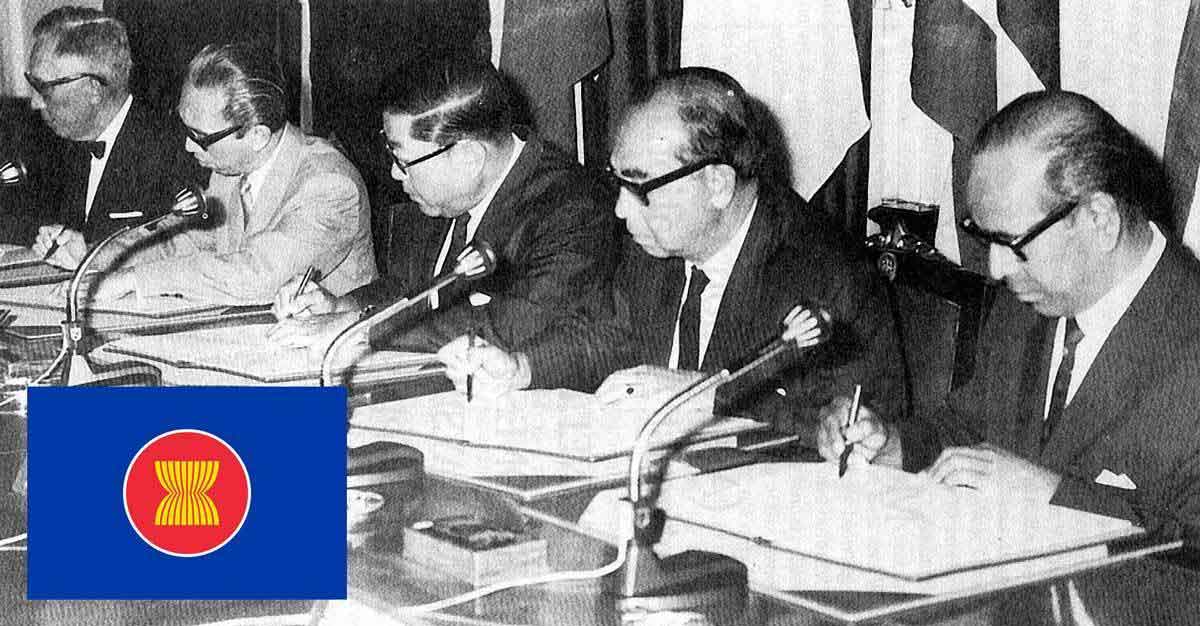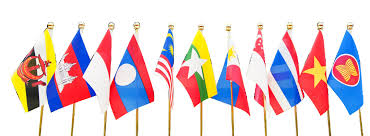About ASEAN
ASEAN was established in August 1967 with the purpose of accelerating the economic growth, social progress, and cultural development in the region, and promoting regional peace and stability.

On 8 August 1967, five leaders – the Foreign Ministers of Indonesia, Malaysia, the Philippines, Singapore and Thailand – sat down together in the main hall of the Department of Foreign Affairs building in Bangkok, Thailand and signed a document. By virtue of that document, the Association of Southeast Asian Nations (ASEAN) was born. The fiveForeign Ministers who signed would subsequently be hailed as the Founding Fathers of probably the most successful inter-governmental organisation in the developing world today.
The document that they signed would be known as the ASEAN Declaration.
ASEAN principles are inspired by the EU, in that it is an association with common goals, build up of individual Nations who choose to participate. The current member nations are Malaysia, Singapore, Brunei, Indonesia, Philippines, Thailand, Cambodia, Laos, Vietnam, Myanmar.
The ASEAN Declaration states that the aims and purposes of the Association are: (1) to accelerate the economic growth, social progress and cultural development in the region through joint endeavours in the spirit of equality and partnership in order to strengthen the foundation for a prosperous and peaceful community of Southeast Asian nations, and (2) to promote regional peace and stability through abiding respect for justice and the rule of law in the relationship among countries in the region and adherence to the principles of the United Nations Charter. In 1995, the ASEAN Heads of State and Government re-affirmed that “Cooperative peace and shared prosperity shall be the fundamental goals of ASEAN.”
The Treaty of Amity and Cooperation (TAC) in Southeast Asia, signed at the First ASEAN Summit on 24 February 1976, declared that in their relations with one another, the High Contracting Parties should be guided by the following fundamental principles:

Malaysia is one of the 10 members of the Association of South East Asian Nations (ASEAN), the third largest economy in the region in terms of GDP (12%) and the EU’s third largest trading partner in ASEAN.
The ASEAN region is a dynamic market with some 640 million consumers and ranks as the eighth economy in the world. The countries as a group are the EU’s third largest trading partner outside Europe, after the US and China.
Ensuring better access for EU exporters to the dynamic ASEAN market is a priority for the EU. Negotiations for a region-to-region trade and investment agreement between the EU and ASEAN were launched in 2007 and paused by mutual agreement in 2009 to give way to a bilateral format of negotiations.
These bilateral trade and investment agreements were conceived as building blocks towards a future region-to-region agreement.